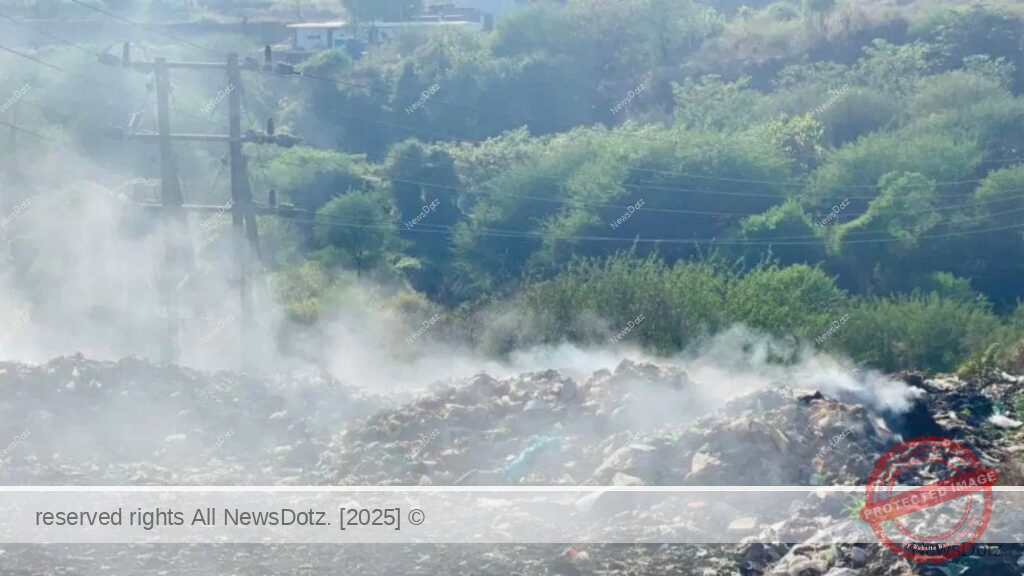A Rapid Increase in Air Pollution due to Openly burning garbage in Pimpri-Chinchwad. Despite health risks and laws, illegal fires near Bhosari continue, raising concerns over enforcement and public health safety.
Pune, May 03, 2025: As construction projects like cement roadwork and urban street development pick up pace across Pimpri-Chinchwad, another silent crisis is brewing—toxic air pollution.
While dust clouds from road construction are bad enough, the real threat is coming from something more reckless — the open burning of garbage. Residents near HDFC Colony on Bhosari-Nigdi Road, close to the Bird Valley Garden, are witnessing daily plumes of thick, dark smoke as unknown individuals set fire to waste dumped in open spaces.
From plastic and e-waste to dry leaves and general trash, everything is being torched. People are complaining of breathing problems and irritation, while trees in the area have started drying up, scorched by the heat and pollution.
Local activists and citizens are questioning why, despite clear laws under the Pollution Control Act that ban open garbage burning, such acts continue unchecked. The Municipal Corporation has claimed to be taking steps to improve air quality, but residents are left wondering if those efforts are only on paper.
Burning garbage emits toxic gases that pose serious health risks—asthma, lung damage, liver disease, and even cancer in the long run. And while fire hazards are rising with each such incident, no concrete action has been taken to stop it.
As Pimpri-Chinchwad is progressing, its air is being sacrificed in the process and polluted leaving behind many health and infrastructural issues. Until stricter enforcement and responsible waste management are in place, citizens will continue to pay the price with their health.
To curb such harmful practice, the NGT (The National Green Tribunal) has issued fines ranging from ₹5,000 for individual or small-scale burning to ₹25,000 for bulk waste burning. Additionally, under Section 15 of the National Green Tribunal Act, 2010, the NGT enforces the “polluter pays” principle, which means those responsible for burning waste must also pay for the environmental damage caused and contribute to its restoration.

